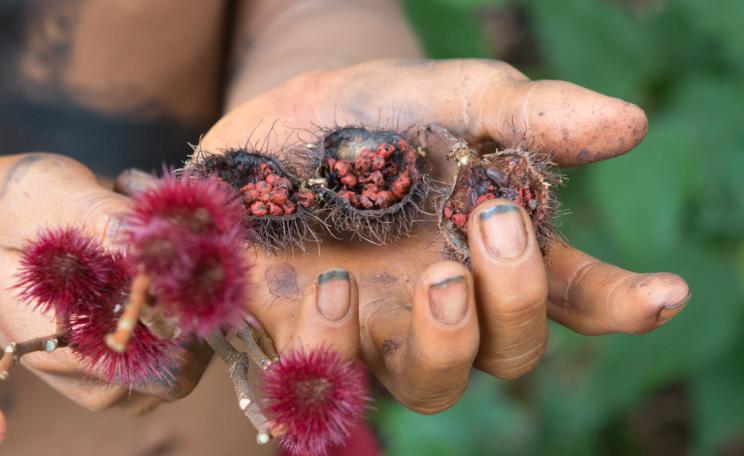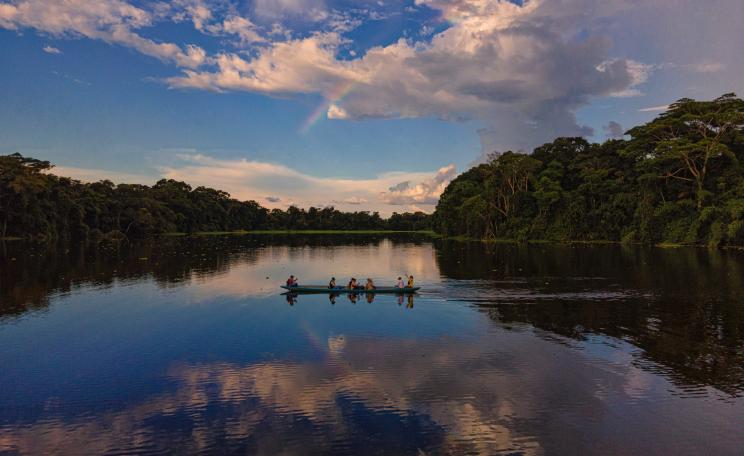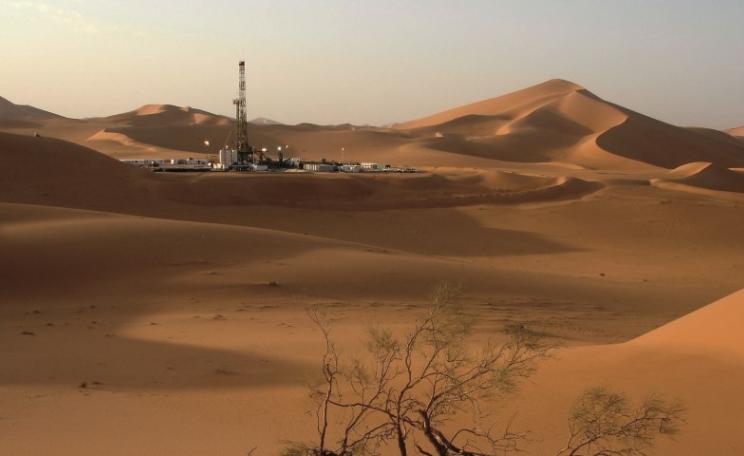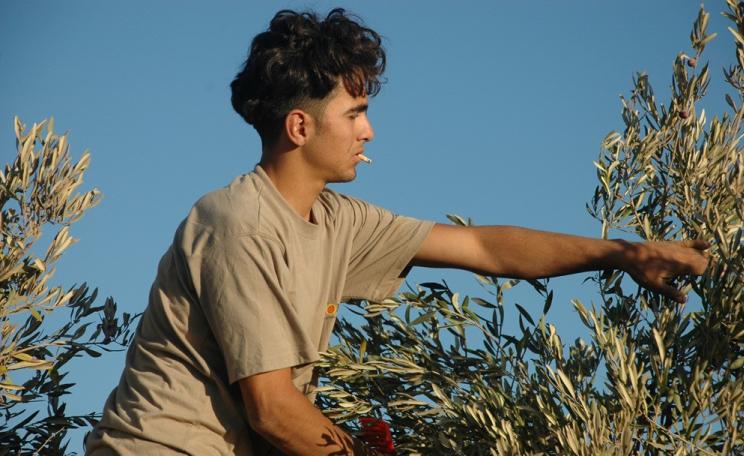Ecuador has now set a precedent for the world by becoming the first country to leave petroleum untapped beneath the ground as a measure against climate change. This sends a message.
Millions of Ecuadorians took part in a nationwide referendum that will keep oil in the ground at the Yasuní National Park in the Amazon rainforest. This was accompanied by a ban on gold mining in the Chocó Andino de Pichincha, a fragile highland biosphere reserve near Quito, the capital city.
This article has been published through the Ecologist Writers' Fund. We ask readers for donations to pay some authors £200 for their work. Please make a donation now. You can learn more about the fund, and make an application, on our website.
The ban on oil development in part of the Yasuní Amazon reserve passed with 59 per cent approval. The ban on mining in the Chocó Andino forest near Quito had 68 per cent support. This should result in the closure of 12 oil platforms and 230 wells that produce approximately 57,000 barrels of oil per day in Yasuní territory, as well as six gold concessions in Chocó Andino.
The referendum revolved around the decision to halt oil operations in the Ishpingo-Tambococha-Tiputini (ITT) block, situated at the heart of Yasuní National Park. It was held after Ecuador's electoral court validated more than 750,000 signatures amassed by the Yasunidos campaign group almost nine years ago.
Biodiverse
Antonella Calle Avilés started campaigning aged 19 and has dedicated the last decade to the campaign: her work has finally paid off.
She told The Ecologist: "When YASunidos began collecting signatures in 2013, then-President Raphael Correa dismissed 60 per cent of the signatures as fake. The group then embarked on a nine-year legal battle to authenticate the signatures.
"Ecuador has now set a precedent for the world by becoming the first country to leave petroleum untapped beneath the ground as a measure against climate change. This sends a message to the global population to stand up against the fossil fuel industry, rather than relying solely on politicians."
Drilling in the national park began in 2016 despite the cries of local indigenous communities and scientists who described the region as “among the most biodiverse places on Earth, with apparent world richness records for amphibians, reptiles, bats, and trees.” They pointed out that Yasuní also protects a considerable number of threatened and local species.
Ecuador has now set a precedent for the world by becoming the first country to leave petroleum untapped beneath the ground as a measure against climate change. This sends a message.
Regeneration
Calle Avilés added: "It was a decade of strenuous efforts for justice. Many had lost hope, but a resilient few persevered despite the biased media and what felt like economic coercion, suggesting that banning oil and mining would result in the loss of education, healthcare, and the stability of the national currency.
"Now that the referendum has been won, the battle is far from over. Our demands extend to healthcare and education in the Amazon region. Ecuador has been drained for five decades. However, it faces similar challenges even now.
"The notion that petroleum extraction would improve healthcare and education is a fallacy. Due to corruption, the revenue from fossil fuels rarely benefits society. The victory in the referendum signifies a turning point towards cleaner water and soil. Forests are no longer being felled, and a programme for nature regeneration has commenced."
The referendum should mean about 726 million barrels of oil remain beneath the Yasuní National Park, which currently accounts for 12 per cent of Ecuador’s total annual oil production. It will also help protect two uncontacted tribes in the region - the Tagaeri and the Taromenane.
Safeguard
The constitutional court has granted oil companies one year to vacate the zone, According to Calle Avilés. However, this time frame excludes weekends and holidays, suggesting that the companies will likely evacuate the region by 2025.
A separate referendum on gold mining in the Chocó Andino was also held. This reserve harbors 12.5 per cent of Ecuador's flora, including 76 endangered plants and unique Andean species like the nearly extinct spectacled bear.
Danila Andagoya, a member of The Youth Network of the Andean Chocó, emphasised the positive impact of the referendum on their community.
Andagoya told The Ecologist: "Our involvement in territorial defence includes advocating for processes that safeguard our land. This includes the Popular Consultation to prohibit mining concessions in the Andean Chocó region.
Reverberations
"We have been advocating for this vote from the very beginning, collecting and verifying signatures. We have worked to inform the population about the consultation and promote a 'yes' vote. The referendum results reflect the widespread concern about this issue, especially among young people, who constitute around 50 per cent of the population.
"Our aspirations encompass fostering unity in the territory, restoring social cohesion, promoting sustainable land use, and coexisting harmoniously with nature. Furthermore, conducting extensive research about our region and sharing this knowledge with our people is vital to effectively safeguard it."
Karlijn Van den Broeck, a spokesperson for CATAPA, a Belgian-based movement lending support to communities in the Andes region battling against mining projects, applauds the triumph of the consultations in Ecuador but warns of the need to remain vigilant in order to ensure oil companies evacuate the territory.
She told The Ecologist: "The Quito without mining referendum marks a significant milestone as it represents the first instance globally where a capital city, driven by its own residents, has made this resolute proclamation: 'We do not want any mining around Quito.' The fact that they not only orchestrated this grassroots referendum but also secured victory is bound to send reverberations throughout the rest of South America.
Well-being
"We are well aware that our Ecuadorian partners have been entrenched in this struggle for years, and receiving such encouraging news and achieving a definitive victory brings hope not only to them but also to communities across South America and beyond that are fighting for their right to reject mining. It is imperative that we maintain vigilant and provide oversight for the implementation of the vote, as we have witnessed in other nations."
"Our Ecuadorian allies are not solely rejecting mining; they are also waging a battle to preserve existing initiatives and traditions that prioritise the well-being of people and their surroundings. Moreover, they are actively promoting new endeavours that ensure the prosperous continuity of their communities on their ancestral territories."
Oil and mining associations have argued that their sectors remain essential to Ecuador's beleaguered economy, and claim any bans would render the affected regions vulnerable to illicit mining and rampant deforestation.
Petroecuador has warned of adverse economic consequences due to the referendum's outcome, projecting a loss of around $1.2 billion in earnings. This could lead to decreased social spending and the withdrawal of subsidies that many families rely upon, the company claimed.
This Author
Yasmin Dahnoun is a freelance environmental journalist based in Bristol. To be in touch with Yasmin for questions or queries, please contact dahnoun.yasmin@gmail.com.
This article has been published through the Ecologist Writers' Fund. We ask readers for donations to pay some authors £200 for their work. Please make a donation now. You can learn more about the fund, and make an application, on our website.







